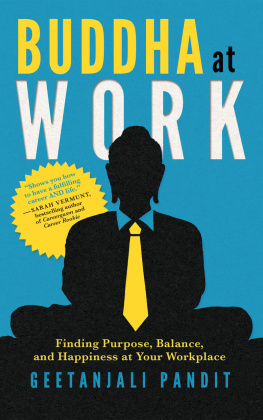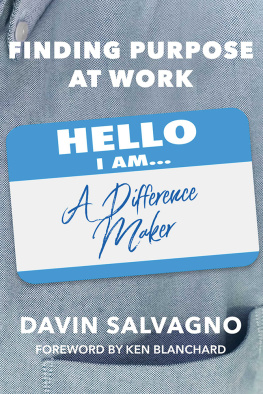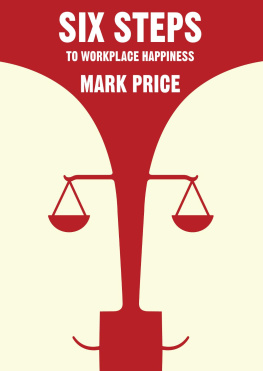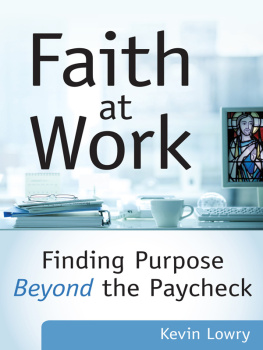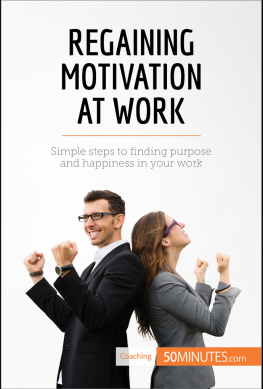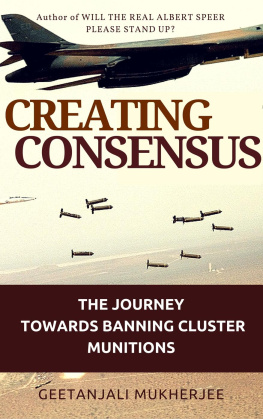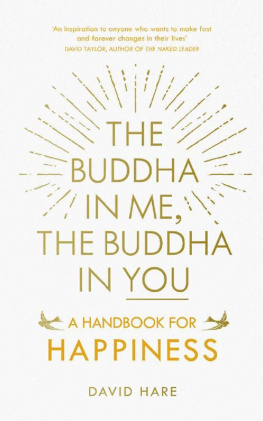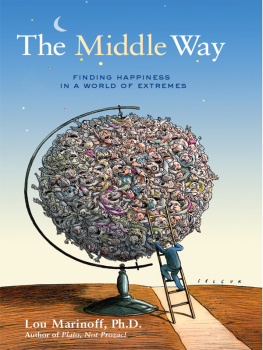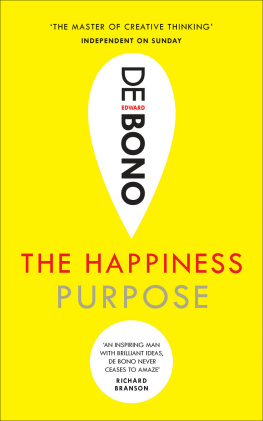Absorbing. A must-read for anyone who is going through the swamps of life and career.
Prabir Jha, Former President & Global Chief People Officer,
Cipla
There are plenty of books about workplace success, and plenty about Buddhist ideals and principles. Having both under one cover translates to an inspirational read firmly grounded in workplace experience and filled with thought-provoking insights especially recommended for readers who would adopt different, more positive approaches to work goals and life.
D. Donovan, Senior Reviewer,
Midwest Book Review
Applying simple but powerful Buddhist practices, Buddha at Work shows you how to have a fulfilling career AND life. This is a career book that goes deeper than most.
Sarah Vermunt, bestselling author of
Careergasm and Career Rookie
As an HR executive, I have read my fair share of career and self-help books, and Buddha at Work stands out as a fine example of how to handle the stresses and challenges of work-life balance. If youre looking for guidance on how to follow your north star, Buddha at Work is a good book to add to your collection.
Paul Marchand, EVP & Chief Human Resources Officer,
Charter Communications
Buddha at Work
Finding Purpose, Balance, and Happiness
at Your Workplace
geetanjali pandit
Published by Bright Hart Books
Libertyville, IL 60048
Buddha at Work
Publishers Cataloging-In-Publication Data
(Prepared by The Donohue Group, Inc.)
Names: Pandit, Geetanjali, author.
Title: Buddha at work : finding purpose, balance, and happiness at your workplace / Geetanjali Pandit.
Description: Libertyville, IL : Bright Hart Books, [2020] | Originally published: Gurugram : Hachette Book Publishing India Pvt. Ltd., 2017.
Identifiers: ISBN 9781950355013 (paperback) | ISBN 9781950355990 (ebook)
Subjects: LCSH: Pandit, Geetanjali--Career in human resources. | Work-
Religious aspects--Buddhism. | Gautama Buddha--Teachings. | Work-
Psychological aspects. | Job stress. | Stress management--Religiousaspects--Buddhism. | Mindfulness (Psychology) | LCGFT: SELF-HELP /Personal Growth / Success. | RELIGION / Buddhism / History. Classification: LCC BQ4570.B86 P36 2020 (print) | LCC BQ4570.B86 (ebook) | DDC 294.3444--dc23
Library of Congress Control Number: 2019952670
All rights reserved. No portion of this book may be reproducedmechanically, electronically, or by any other means, including photocopyingwithout the written permission of the publisher.
Excerpt(s) from THE DHAMMAPADA: THE SAYINGS OF THE BUDDHA found on pages 1, 8, 25, 43, 63, 92, 118, 142, 201, and 254 translation copyright 1976 by Thomas Byrom. Used by permission of Vintage Books, an imprint of the Knopf Doubleday Publishing Group, a division of Penguin Random House LLC. All rights reserved.
Grateful acknowledgment is also made to Sutta Central for the translations found on pages 173, 198, and 227. Sutta Central is an open-source collection of early Buddhist texts and can be found at suttacentral.net
Cover conceptualization by Ankit Singh.
Contents
Introduction
Stress-proofing
Buddhas Life
Introduction
I wonder if any of the nations across the globe hound their progeny with the urgency of settling down the way we do in India. Its a mission we pursue unquestioningly, much like one does a mirage in the desert, through the course of our lives.
Like a million other young Indians, I too was raised on this axiom. During those impressionable years of my childhood and adolescence (not to be confused with the actual process of growing up!), the formula was simple and pretty much non-negotiable: Study hard, do well academically, crack the right competitive exam, get that dream job with the appropriate salary and perks, and voil you were settled!
Integral to this process of getting settled were several factors: good communication skills (especially in English), a pleasing personality (I have yet to understand this one fully), and a penchant for hard work. If you had all of these attributes at your disposal, the way forward was clear of obstacles; you would get through interviews with ease, there would be no dearth of employers waiting to recruit you, and the final goal of getting a job or even several would be met.
Alas, this was not the case with me. In fact, I can safely argue, with several decades of work experience as a human-resources professional behind me, that this is not the case with a great many people.
I was to discover this for myself the hard way in 2000, when I resumed my quest for a job almost a year after I had returned to India from the United States.
But to take you back to my situation in 2000 and explain the context, I must share something else with you. In December 1996, my beautiful, beloved mother was diagnosed with pancreatic cancer a deadly form of the disease. This altered my universe.
I chose to quit my job, virtually at the start of my post-MBA career, to nurse my ailing mother. When my mother passed away, in May 1997, I chose to leave India. Thereafter, I spent a little more than a year in the United States, studying for a masters degree at Lesley College (now Lesley University), a cousin to Harvard University as the two campuses are adjacent to each other.
But just when I thought I had started the healing process in my life and within myself and had taken major steps toward the goal of settling down, my family situation back home forced me to return to India sometime between 1998 and 1999. This time, it was my father who was ill. Diagnosed with bipolar disorder before my mothers demise, he now needed a pacemaker and wanted to sort out property matters with my brother and me. He was 72 years old and felt compelled, no doubt, because of his age and health issues, to settle matters.
Returning to difficult personal circumstances, brittle relationships, and the void created by my mothers death brought in its wake an endless stream of heightened practical and emotional problems.
Despite it all, I was confident of at least one thing getting a job. After all, I had everything in place to achieve that end, all those advantages that the world had persuaded me were necessary for bagging said job (and that I had accepted without question): a sound education, some of the most coveted degrees from Indias finest institutes, the privilege of some kind of foreign education, and, along with it, that most desirable of assets, international exposure. I was articulate and possessed, by all accounts, a pleasing personality. I was set to conquer the world. Or so I believed.
Foraying confidently into the job market, I sent in my application for various HR positions at different organizations. Interview upon interview followed. I began feeling like those characters played by the chubby heroes of Hindi movies of the 1960s and 1970s, who would trudge from office to office, from one interview to the next, without ever landing a job. They met with rejection, and so did I.

